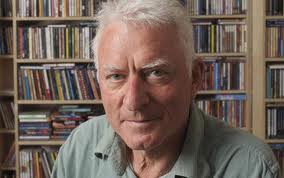Opinion: Time to say goodbye to the label 'World Music' | reviews, news & interviews
Opinion: Time to say goodbye to the label 'World Music'
Opinion: Time to say goodbye to the label 'World Music'
These two little words were a marketing tool we no longer need

Although the phrase “world music” was first coined by American ethnomusicologist Robert Brown in the 1960s, it didn’t become a brand, as it were, until 1987, when a bunch of London-based DJs, musicians and record company folk (including the late Charlie Gillett) met in an Islington pub and landed on the idea of putting all this foreign music under one commercially viable umbrella.
The name almost immediately became both a blessing and a curse. But today, I would argue, it’s mostly a curse.
Present at that 1987 meeting was fRoots editor Ian Anderson, who amusingly nailed why “world music” was the lesser of quite a few evils that were considered when he wrote the following: “'Worldbeat' (left out anything without drums), 'Tropical' (bye-bye Bulgarians), 'Ethnic' (boring and academic), 'International Pop' (the death-by-Johnny-and-Nana syndrome) and 'Roots' (left out Johnny and Nana). 'World Music' seemed to include the most and omit the least, and got it on a show of hands.”
Unfortunately, despite all this shrewd second-guessing, they failed to anticipate that any all-encompassing name was going to be problematic on more than one level. Firstly, because any single label was still, by definition, going to be inadequate to describe the plethora of musical styles that it would be expected to embrace. And secondly, because there was always going to be something post-colonially dubious about the fact that we divide Western pop into dozens of genres, sub-genres and micro-genres, while the rest of the planet's sounds have to just make do with this one essentially meaningless signpost.
But keeping the pedants, purists, and politically correct happy wasn’t what the label was about. It was about getting all this exciting music before a public that hardly knew it even existed. The label was never meant to describe or contain, only to sell, and in this aspect it did a pretty good job for several decades. The likes of HMV and Virgin were more than happy to take this new category onboard and demarcate some floorspace to it, and World Music became a successful brand.
However, such a neat, streamlined story doesn’t take into account the makers of all this music. Most were more than happy to go with the flow, for the new audience it brought them. But a few, along with many crtics and cultural commentators, predictably objected to what they saw as a ghettoisation of anything that wasn’t “Anglo-Western pop”, to coin David Byrne’s succinct description.
 In fact, Byrne himself (pictured left) put the boot into world music with his 1999 essay, “Why I Hate World Music”. At the time I could see where Byrne was coming from with his idea that exoticising music patronises it, and makes it “safe”. But I still felt that the label’s advantages outweighed its disadvantages: if all this wonderful, surprising, thrilling music wasn’t boxed and labelled, then it simply wasn’t going to get heard in our blinkered consumerist culture in which everyone needs to be led by the hand to new things, particularly if those new things speak in foreign tongues.
In fact, Byrne himself (pictured left) put the boot into world music with his 1999 essay, “Why I Hate World Music”. At the time I could see where Byrne was coming from with his idea that exoticising music patronises it, and makes it “safe”. But I still felt that the label’s advantages outweighed its disadvantages: if all this wonderful, surprising, thrilling music wasn’t boxed and labelled, then it simply wasn’t going to get heard in our blinkered consumerist culture in which everyone needs to be led by the hand to new things, particularly if those new things speak in foreign tongues.
Then in 2005, Nitin Sawhney, having just bagged a Radio 3 World Music Award, decided to bite the hand that fed him by proclaiming that the music he produced wasn’t world music. Given that world music isn’t a musical style - in the sense that jazz, folk or even heavy metal are musical styles - it could be argued that no musician or band under the world music umbrella plays world music. But that’s a hard idea to convey in a media-friendly soundbite, so no one stood up for poor old world music, and Sawhney’s cold shoulder did nothing to help the image problem the non-genre had, and continues to have.
My belief is that the average music fan simply fills the vacuum created by their ignorance of what this non-genre is with the crudest and most negative of preconceptions. Either world music is perceived as tasteful ethnic coffee table fodder, or as the irritatingly ineffectual noise made by the kind of omnipresent Peruvian pan pipe band parodied by the likes of The Fast Show and, more recently, South Park. But for me world music has always been the complete antithesis of these damning stereotypes.
For the past couple of decades, all Western pop genres - from rock to R&B, from hip hop to mainstream pop - have simply been recycling the riffs, grooves and melodies of the past half-century. World music was my escape from this tedious state of affairs. Within its blurred, ever-fluctuating parameters were excitingly immersive polyrhythms, strange new instruments with intriguing timbres and vocalists so charismatic that it hardly mattered that I hadn’t a clue what they were singing about. From tough, politically anarchic Afrobeat from Nigeria, to jazz and pop-tinged Fado from Portugal, world music was the first new music that had fully engaged me since Bowie was in Berlin, and The Clash were boldly going where no punk band had gone before.
So it served its purpose for me and for many other music lovers in search of new sounds in the wake of the death of originality in UK and US pop. I am grateful that its very existence as a category distinction opened the floodgates for a vast amount of music that otherwise wouldn’t have reached my ears. However, this awkward, misleading, non-descriptive, post-colonial faux pas of a label has had its day. Decades have been spent discussing whether world music is purely about “authentic” music, “roots” music, or if it also embraces the “otherness” of more experimental studio-based projects by, say, hip DJs from “exotic” locations. Note all the problematic words I’ve put in quote marks because they either have the albatross of political incorrectness or the albatross of ambiguity hovering over them.
Which of course is a problem with “world music” too. Those two little words rarely appear these days without being caged by their apparently necessary parenthesis, which, more than anything, tells us something’s seriously amiss. So it’s time to say, thanks, World Music: you did as good a job as could be expected for a few decades. But in this egalitarian age of digital downloads - and a million ways to hear new stuff at the click of a mouse - you really have become embarrassingly counterproductive.
One world music album I reviewed a few years ago even had the words “This is not a world music album” printed on its sleeve, and then used the euphemism “open-minded music from 15 different countries” instead. At the time I found this infuriating, thinking it just made the struggle to make world music credible even harder, and said so in my review. Now I have the more sober view that Crammed Discs knew they had a good product, and just wanted it to reach people they knew were turned off by the w-word. And what’s so wrong with that?
 Following the death last March of the much-mourned Charlie Gillett (pictured right), arguably world music’s most credible and influential champion, the BBC axed both its BBC London and World Service world music show (both of which were at one time helmed by Gillett). And so now any non-Anglo-Western music gets even less exposure on the airwaves.
Following the death last March of the much-mourned Charlie Gillett (pictured right), arguably world music’s most credible and influential champion, the BBC axed both its BBC London and World Service world music show (both of which were at one time helmed by Gillett). And so now any non-Anglo-Western music gets even less exposure on the airwaves.
The add-on effect of this is that visiting international musicians get even fewer opportunities to let the public know about their gigs, and London and the rest of the country have become even more musically impoverished and insular. If you consider also that there has never been a programme solely devoted to world music on either Radio 1 or Radio 2 (where, in my opinion, the biggest potential audience for the kind of global music I enjoy resides) you’ve got a pretty sorry state of affairs.
Is the label “world music” to blame for all this? Of course not. But words are powerful things. And the fewer words you use to describe something, the more chances there are for misunderstandings and misinterpretations. We all have an enthusiastic appetite for foreign food, foreign travel and foreign cinema, and therefore one would think the enlightened and groovy amongst us should be equally keen to fill their iPods with foreign music. But would you be drawn to a restaurant that just called itself World Food? We’ve now been informed all this great music is out there, we know whether it's Balkan global fusion or busy Brazilian sambas that most get our feet tapping, so perhaps it’s time to take the sign down, and leave us to our own personal (listening) devices.
Explore topics
Share this article
Add comment
The future of Arts Journalism
You can stop theartsdesk.com closing!
We urgently need financing to survive. Our fundraising drive has thus far raised £49,000 but we need to reach £100,000 or we will be forced to close. Please contribute here: https://gofund.me/c3f6033d
And if you can forward this information to anyone who might assist, we’d be grateful.

Subscribe to theartsdesk.com
Thank you for continuing to read our work on theartsdesk.com. For unlimited access to every article in its entirety, including our archive of more than 15,000 pieces, we're asking for £5 per month or £40 per year. We feel it's a very good deal, and hope you do too.
To take a subscription now simply click here.
And if you're looking for that extra gift for a friend or family member, why not treat them to a theartsdesk.com gift subscription?
more New music
 Pop Will Eat Itself's 'Delete Everything' is noisy but patchy
Despite unlovely production, the Eighties/Nineties unit retain rowdy ebullience
Pop Will Eat Itself's 'Delete Everything' is noisy but patchy
Despite unlovely production, the Eighties/Nineties unit retain rowdy ebullience
 Music Reissues Weekly: The Earlies - These Were The Earlies
Lancashire and Texas unite to fashion a 2004 landmark of modern psychedelia
Music Reissues Weekly: The Earlies - These Were The Earlies
Lancashire and Texas unite to fashion a 2004 landmark of modern psychedelia
 Odd times and clunking lines in 'The Life of a Showgirl' for Taylor Swift
A record this weird should be more interesting, surely
Odd times and clunking lines in 'The Life of a Showgirl' for Taylor Swift
A record this weird should be more interesting, surely
 Waylon Jennings' 'Songbird' raises this country great from the grave
The first of a trove of posthumous recordings from the 1970s and early 1980s
Waylon Jennings' 'Songbird' raises this country great from the grave
The first of a trove of posthumous recordings from the 1970s and early 1980s
 Lady Gaga, The Mayhem Ball, O2 review - epic, eye-boggling and full of spirit
One of the year's most anticipated tours lives up to the hype
Lady Gaga, The Mayhem Ball, O2 review - epic, eye-boggling and full of spirit
One of the year's most anticipated tours lives up to the hype
 Slovenian avant-folk outfit Širom’s 'In the Wind of Night, Hard-Fallen Incantations Whisper' opens the door to inner space
Unconventional folk-based music which sounds like nothing else
Slovenian avant-folk outfit Širom’s 'In the Wind of Night, Hard-Fallen Incantations Whisper' opens the door to inner space
Unconventional folk-based music which sounds like nothing else
 'The Art of Loving': Olivia Dean's vulnerable and intimate second album
Neo soul Londoner's new release outgrows her debut
'The Art of Loving': Olivia Dean's vulnerable and intimate second album
Neo soul Londoner's new release outgrows her debut
 Music Reissues Weekly: The Peanut Butter Conspiracy - The Most Up Till Now
Definitive box-set celebration of the Sixties California hippie-pop band
Music Reissues Weekly: The Peanut Butter Conspiracy - The Most Up Till Now
Definitive box-set celebration of the Sixties California hippie-pop band
 Doja Cat's 'Vie' starts well but soon tails off
While it contains a few goodies, much of the US star's latest album lacks oomph
Doja Cat's 'Vie' starts well but soon tails off
While it contains a few goodies, much of the US star's latest album lacks oomph
 Mariah Carey is still 'Here for It All' after an eight-year break
Schmaltz aplenty but also stunning musicianship from the enduring diva
Mariah Carey is still 'Here for It All' after an eight-year break
Schmaltz aplenty but also stunning musicianship from the enduring diva
 Album: Solar Eyes - Live Freaky! Die Freaky!
Psychedelic indie dance music with a twinkle in its eye
Album: Solar Eyes - Live Freaky! Die Freaky!
Psychedelic indie dance music with a twinkle in its eye

Comments
...
...
...
...
...
...
...